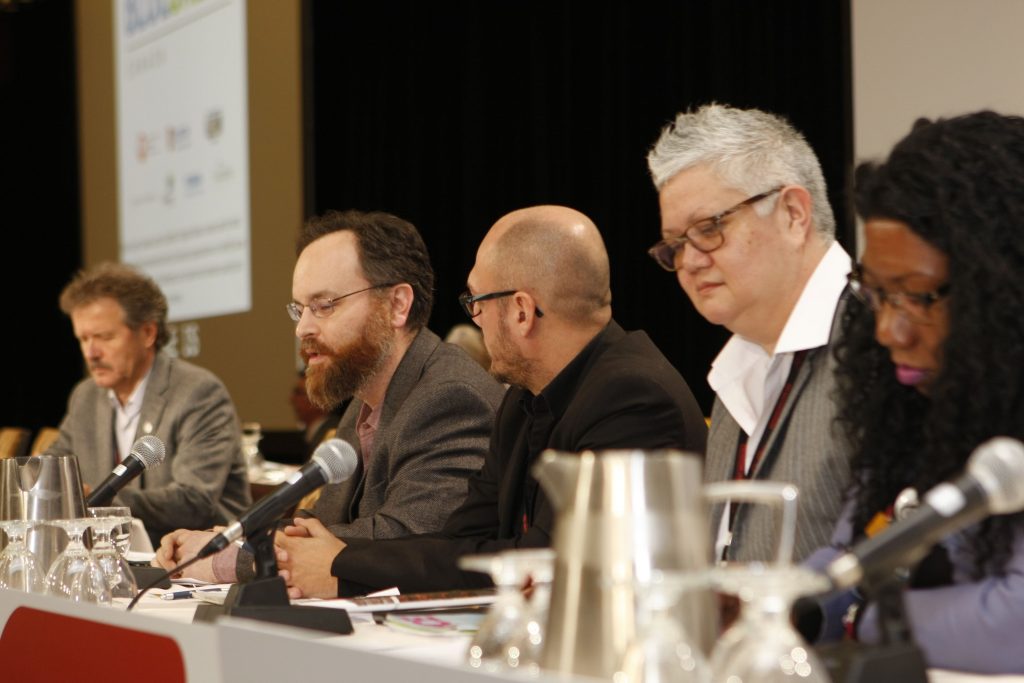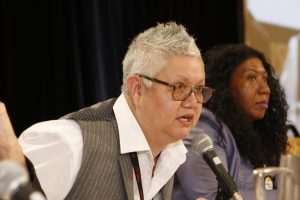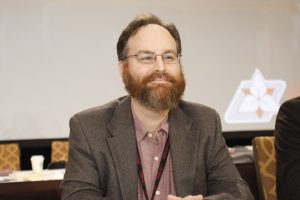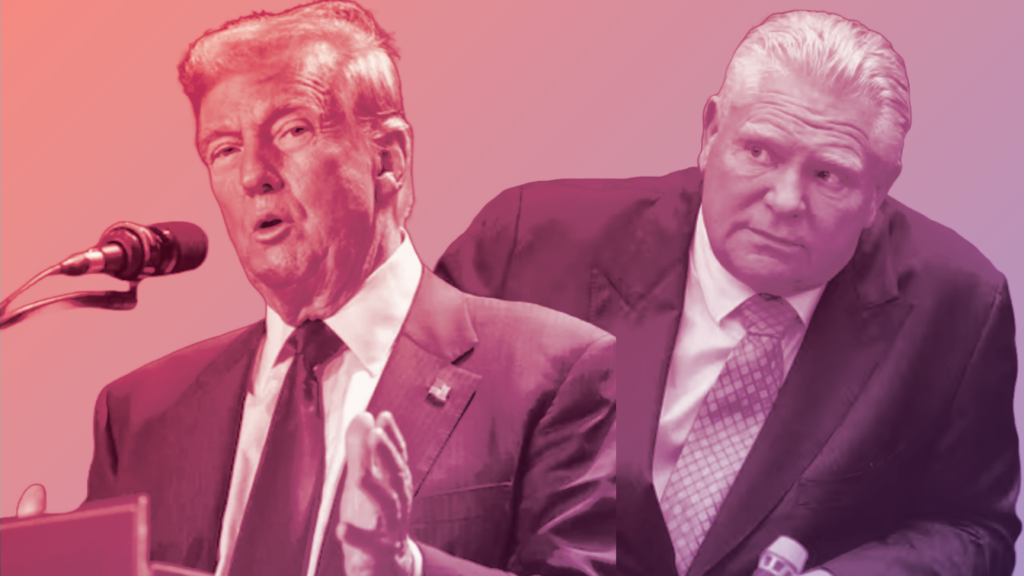

Joy Lachica speaks about why green jobs matter for everyone.
Teacher Joy Lachica describes recently listening to the radio with her seven-year-old daughter and hearing the announcer talk about a “letter to humanity” signed by over fifteen thousand scientists and warning that life on this planet is in dire jeopardy.
“Mama, what does that mean?” her daughter demanded to know.
“How do I answer my child?” asked Lachica, who sits on the provincial executive board at the Elementary Teachers Federation of Ontario (ETFO). “What do you say? What hope do we offer our youth at the tip of our tongues? It’s not a quick answer.”
Lachica urged teachers to educate themselves in order to educate young people about building green economies and building a hopeful future.
Hope also lies in the power of today’s workers and communities to ensure a seat the table, posited Jamie Kirkpatrick, of Blue Green Alliance Canada. Formed in 2008, the alliance comprises of several major unions including the United Steel Workers (USW), Unifor, Clean Energy Canada, the Broadbent and Pembina Institutes, and Columbia Institute.

Jaimie Kirkpatrick of the Blue Green Alliance.
Showing a slide with images of three puzzle pieces, Kirkpatrick said that the first piece symbolizes government, the second piece represents industries, and the third piece represents workers, allies, and communities.
“We’re the ones who only have power when we are together,” he said of the third piece. “And we are sometimes not included,” he pointed out, highlighting how the Alberta government initially spoke only to industries about the coal phase-out.
“That was a mistake,” he suggested, explaining that the provincial government eventually reached out to unions. A similar trend has played out at the federal level as well, said Kirkpatrick, pointing to the Canadian Labour Congress’s recent announcement that it will finally be working with the Environment Minister on a Just Transition Task Force.
Governments pose a challenge, said Patrick Rondeau of the Fédération des travailleurs et travailleuses du Québec (FTQ), but they aren’t the only ones who do.

Patrick Rondeau, Federation des Travailleurs et Travailleuses du Québec.
He described how many non-governmental organizations told Quebec unions that a “just transition” can’t only be about workers concerned about their own jobs. “We told them they are right, we have to think further than just the workers, but for the entire communities,” said Rondeau.
And Quebec unions also had to modify their messaging with the government – creating a new narrative that links the economy to social justice. He said the FTQ is organizing a forum in May to bring a full agenda on just transition to the government.
“The clock is really ticking,” he said. “Nine billion people died from pollution last year.”
Canada’s postal workers are also involved in helping advance a green economy, said Megan Whitfield of CUPW.
“We want a 100 per cent renewable economy that addresses inequalities and puts power in our hands, and improves the lives of all Canadians,” said Whitfield.
John Cartwright, president of the Toronto and York Region Labour Council, wove in his own views on the urgency of climate change, encouraging delegates to read the Council’s GreenPrint for Greater Toronto, which applies to every region in the province, and in the country.
“We have to redefine the world that we are living in,” said Cartwright.


